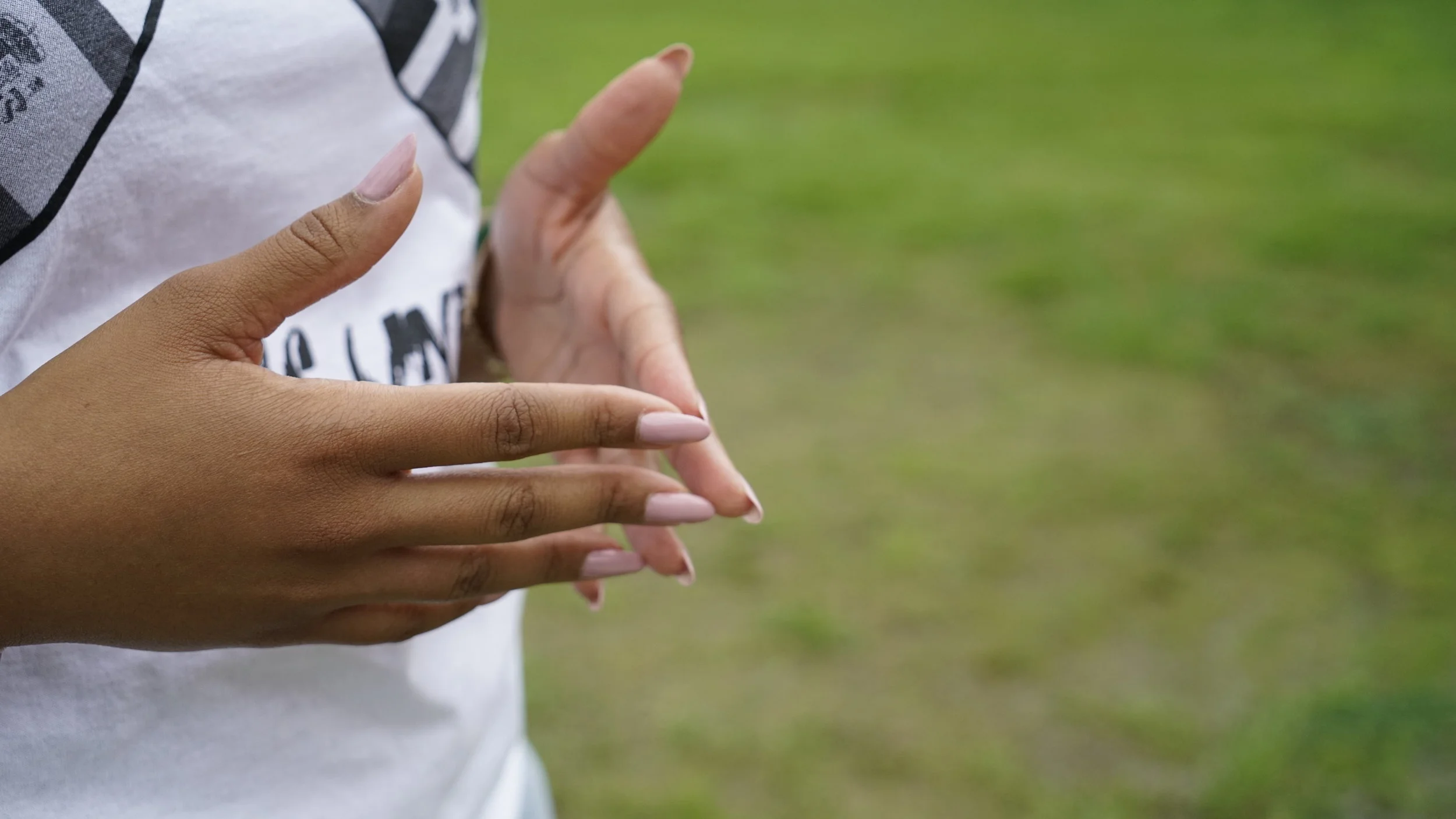ROCHELLE
I'm an English Learners (EL) teacher at a local high school. I've been working with the EL community for nearly three years. Back when our EL population was first growing, the principal said to me, "Hey, why don't you take the EL class for one period a day? You're already working with computers, they can just sit in the back and do Rosetta Stone." I felt like, you know, having kids do Rosetta Stone on a computer every day of the week is probably not a good idea! That should never substitute for actually engaging with students or trying to teach them as you would teach anybody else. So I said OK, let me take this challenge on. I had already taught English in Japan, so I convinced the principal to use me as a resource instead, to fully help integrate the students into the school culture.
Now we have a full blown EL program with a coordinator, and the EL student population has grown by leaps and bounds. As a school community, we are very welcoming from the very first moment an EL student walks in to register, which is different from what students at other schools are experiencing. Students have explicitly said that either they encountered physical violence or were just not made to feel welcome. I feel fortunate that we can be a bright spot and safe space for EL students and their families.
“Then I tell my students to imagine how it feels when you say that this student is from an entirely different country.”
The students often talk about being bullied, even at our school. Things happen like Black students calling all the EL students "Mexicans." I have to remind them that no, we actually don't have any Mexican students. Rather, they're mostly from Honduras or El Salvador. I try to create awareness and compare it to how some students from New Orleans get upset if you say they're from Downtown when they're from Uptown or vice versa. Then I tell my students to imagine how it feels when you say that this student is from an entirely different country - an entirely different country. I just remind them to be sensitive to that.
In this city, we've had the good fortune to have allies in some of our darkest times, so I feel like it's very important that we collectively are allies for other people, as well. Now it's our turn. I think the rhetoric we're hearing is calling for us to be fearful, to be afraid. But we are a resilient city! We're stronger. We're better than any fearful rhetoric. Just being able to have individuals and allies speak out about what's going on, whether it's because you're an immigrant or identify as LGBTQ, by supporting individuals speaking out it helps marginalized people know that the're not alone. We are advocates. We are allies. We should always be open to that role.
